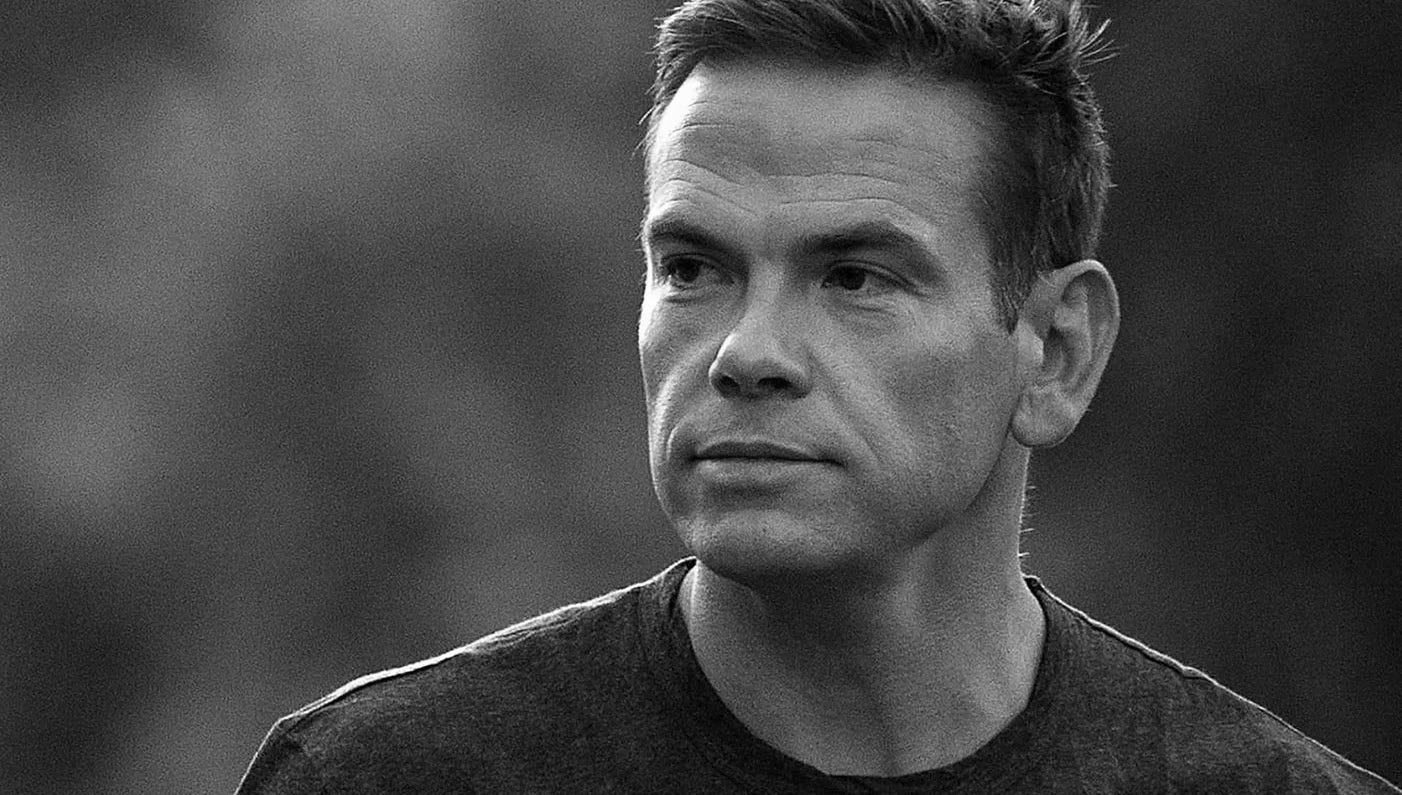Top VC clusters, Living in a simulated reality? Steve Jobs’s sage advice, 221 VC funds 'Stand united with Israel,' Liz Stark's Lightning Network on fire, Beyoncé tour rakes in the bucks...
Now wonder Disney’s boss Bob Iger is ‘overwhelmed and exhausted’
Walt Disney Co. turns 100 and now symbolizes the incredibly shrinking Old Hollywood—all the better for the creators and their fans.

Disney is now trading at its lowest price in a decade, and it ain’t going back up unless CEO Bob Iger takes bold action or passes the baton to someone with a little imagination. Disney’s last great move was during Mr. Iger’s first tenure as CEO of Disney (2005 to 2020) when he bought Pixar, Marvel Entertainment, Lucasfilm, and 21st Century Fox, moved their IP off of Netflix, and launched Disney+, signed 10 million customers on Day One. Now, even Disney+ is bleeding with $2 billion in losses so far this year, and its subscribers are fleeing for the same reason their theme parks lost visitors— by gouging customers with higher prices.
It’s always a signal when merging companies is the new survival tactic in the face of global Silicon Valley challengers. We took down the mini-computer crowd with our PC and the enterprise software and consumer service industries with cloud computing, and now we gleefully have our eyes on Hollywood. Netflix has led the charge, with Amazon and Apple following, and now we sit on the precipice of a new decentralized computing paradigm that will rewrite the entertainment industry from top to bottom.
No amount of money that Disney has in its pocket can fend off the Web3 innovation assault that confronts them. And, as usual, very few people in Old Hollywood have any idea what we are up to, and we love every second of it. Our mantra has always been individual empowerment and reward, and what drives us is a distaste for the middleman. Our goal is to free the artist so their best, most authentic work wins without intermediaries tampering with their art and the hands of studio and record label heads with their hands in their pockets.
The global Silicon Valley is now leading the world where all IP and real-world assets of value will be tokenized and, therefore, more portable, liquid, and tradable. The best news for creators is they will own a much higher percentage of what they create, and their connection with their fans will be direct and ongoing. In New Hollywood, fans will feel they have a greater stake in the success of their favorite artists, as memorialized in the special edition tokens they buy, which will be full of exclusive content and privileges we can’t even imagine yet. Fans will even have the opportunity to make micro-investments in new productions before they even begin.
Our challenge is to survive Web3. We are moving into a trustless, permissionless, creator economy where content is disintermediated, tokenized, and instantly distributed. All barriers to entry are obliterated. Blockchain, crypto, and the metaverse must be at the top of our agenda.”
— Lachlan Murdoch, Chairman, News Corporation
Right now, Old Hollywood is still trying to navigate the power exerted by the Web2 streamers who delivered the first punch to the Studio Heads. But we are not finished yet, and to succeed, we are not afraid to eat our own to complete our noble cause. Silicon Valley-based Netflix is also up against the ropes and needs to be reinvented, and we will keep punching until the people who create the real value are the ones who reap the biggest rewards.
Dear Mr. Iger,
Study how Wall Street is reinventing itself by leveraging blockchain applications and tokens to slash overhead and offer its customers faster and more secure transactions. Think of NFTs as THE new format to distribute content in ways that have never been possible. Assemble a small team of NFT geeks and innovative creators and figure out how you can dice up your impressive library of IP and sell it all over again to secure the loyalty of the people who already love your characters and films. Develop another group that focuses on how you can turn NFTs into crypto keys that allow theme park visitors to gain special access to different rides and other privileges and serve as a way to stay in touch after they leave the park. Market these as ‘Your Crypto Key to the Magic Kingdom.’ Gen Z will love it!
Set up a crowdfunding operation that allows fans to buy slivers of ownership stakes in all your future productions. Don’t let tiny political interest groups persuade you to diminish your characters by turning them into symbols of trendy social statements that will not be relevant tomorrow. People engage with entertainment so they can escape the partisan political world they no longer trust. Embracing Web3 innovation will allow you to slash unnecessary costs that have nothing to do with creating insanely great creative work and open up huge new revenue sources that also inspire customer loyalty. Steve Jobs once reminded us that we don’t have to accept things the way they are just because they are the way they are. Be not afraid. Be Bold. Reinvent Disney. You can do this and protect your legacy, which we can tell is very important to you.
Bob, are you still listening? The NFT-funded feature film, The Quiet Maid, backed by Ocean’s Eleven director Steven Soderbergh, raised its $750,000 production budget by offering NFT-holding fans behind-the-scenes access to the film’s production and a cut of the future revenues via a decentralized autonomous organization (DAO). Can’t get any more Web3 than that, Bob.
Did you know?
(Overheard on the streets of the global Silicon Valley. Got any hot insider tips? Email us editor@cryptoniteventures.com)
VC Whispers
The good news is Atlassian has agreed to acquire video collaboration startup Loom for $975M. The bad news for Andreessen Horowitz, Kleiner Perkins, and Sequoia is the price reflects a 36% markdown from their last investment in Loom, then valued at $1.53B at the top of a clearly over-heated market in 2021.
In 2022, VCs raised a total of $162B across 769 funds, which followed 2021’s record of $154B, which has left $295B of dry powder to invest in startups. The VCs may have deep pockets right now, but also short arms as new VC investments remain flat.

Israeli startups raised $3.3B in VC funding so far in 2023, with the majority of deals including US investors. In spite of the war and some VCs and founders going to the front lines on humanitarian missions, the Israelis, who are accustomed to inbound rocket attacks, are still taking care of business.
Meanwhile, Insight Partners, General Catalyst, and Battery Ventures have committed to donating millions to support humanitarian efforts, and 221 primarily US VC funds signed a letter to ‘stand united’ Israel.

Sequoia China, now HongShan, plans to invest some of its $9B in new capital raised last year (including from US LPs) in companies outside of China through its new office in Singapore. HongShan told the FT that it has no plans to compete with its daddy Sequoia in the US, but we wouldn’t bet on that.
Sequoia’s other offspring, Peak XV, formerly known as Sequoia Capital India, is not shy about its plans to invest in companies in the US. Peak’s MD Shailendra Singh told Nikkei Asia that the firm still requires ‘one of the founders to be in India or Southeast Asia, or they have engineering teams there.’
AI Tracker
Microsoft’s GitHub Copilot, the $10 per month automatic code-writing tool powered by OpenAI launched last year, exceeded $100M in annual recurring revenue, implying $8.3M in monthly revenue. Microsoft dumped $10B in OpenAI in exchange for the rights to use the startup’s AI in its products; now they are cashing in.
Neurotech startup Prophetic wants to help us decode our lucid dreams with the help of Halo, a ‘non-invasive’ device powered by the latest advances in neuroscience and AI. ‘If you look at the history of Prophets, whether it’s Abraham, Mohammed or Buddha, they received their Prophetic wisdom from dreams,’ cofounder Eric Wollberg told Decrypt.
The marriage of AI and blockchain will accelerate smart contract verification, automate procedures, optimize inventory, and discover environmentally friendly shipping methods. Gartner predicts blockchain’s economic impact will reach $176B by 2025 and $3.1T by 2030, and AI will hit $134.8B by 2025.
Microsoft’s scarcely-used search engine Bing (3% global market share) now incorporates OpenAI’s Dall-E 3 image creation capability. It was great fun for kids for a few days until it got ‘lobotomized’ with more robust filters to avoid naughty images.
Best on the Block
Driven by a 1,668% increase in blockchain funding over the last two years, Africa’s blockchain adoption rate grew 1200%, representing the highest growth rate for any continent in the world. These numbers were based on a report issued by Cardano blockchain-backed Emurgo Africa.

Sustainable fashion pioneer Stella McCartney joined forces with traceable merino wool supplier Nativa for her Spring Summer 2024 collection. This venture underpins Paul McCartney’s daughter's commitment to new modes of circular production and helps boost the power of blockchain solutions in fashion.
JP Morgan’s new Onyx blockchain-based Tokenized Collateral Network (TCN) facilitated its first collateral settlement between its clients BlackRock and Barclays this week. TCN allows investors to use assets as collateral in the form of tokens and demonstrates the potential to speed up complex trades.
Mastercard, with Cuscal and Mintable, showcased a groundbreaking solution capable of tokenizing Central Bank Digital Currencies (CBDCs) across different blockchains. The innovation provides consumers the ability to engage in commerce across multiple blockchains with enhanced security.
On Hollywood
Cissy Jones, a prominent voice actor and cofounder of Morpheme, says it is possible to create actor-first, digital-double voices with their AI-powered technology that ensures efficiency and authenticity. The goal is to strike a balance between voice actors, agents, studios, and SAG-AFTRA.
2023 is the year of phenomenal live tour successes, including Taylor Swift’s Eras tour, Beyoncé’s Renaissance tour, and U2’s eagerly-anticipated opening at the new Las Vegas venue Sphere. Beyoncé tour set a monthly boxscore record with $179M in gross sales in August.
Crypto-loving Swifties can buy their tickets to Taylor’s recently debuted Taylor Swift: The Eras Tour movie with Bitcoin, Ethereum, Dogecoin, and Shiba Inu (SHIB). The movie raked in a stunning $100M in presales—on top of the record-shattering worldwide concert tour, and is projected to generate over $5B in gross economic activity in North America alone.

Netflix’s co-CEO Ted Sarandos acknowledges that ad-supported subs and sales are trailing projections. To get these revenues back on track, in-house veteran Amy Reinhard was elevated to the new president of ads. Mr Sarandos says Netflix will also be more transparent about audience data and viewership, which should also help boost sales.
Going Green
A team at Rice University has found a low-cost way to produce hydrogen fuel and graphene without releasing CO₂ by rapidly heating household waste plastics like plastic bags. If the graphene is sold at a fraction of its current price, it could be profitable enough to generate hydrogen as a clean fuel.

Follow the Crypto
The clueless dumb shits over at the SEC made the blanket statement to a federal judge that crypto has ‘no innate or inherent value’, in their argument to dismiss a request for summary judgment in its lawsuit against Coinbase. Now, if they said ‘95% of cryptos’ don’t have value, they would be correct, as most have been experiments, but it’s the 5% and the 100s of successful ones that will follow that will change the world economy.

The Lightning Network, a Bitcoin’s layer-2 solution that provides instant and atomic, high-volume micropayments, has grown a whopping 1,212% over the past two years. These numbers defy Bitcoin’s general plunge, as Google searches for BTC have dipped 45%, along with a 44% drop in price in the same period.
Switzerland’s Backed Finance unveiled a tokenized short-term US Treasury (bIB01) on Coinbase’s new Base blockchain. The bIB01 represents a blockchain-infused iteration of BlackRock’s short-term US Treasuries exchange-traded fund (ETF) and offers investors a 5.25% annual yield.
Into the Metaverse
Blockchain gaming received $2.3B in funding in the first 3 quarters of 2023. Among the investments in the third quarter of 2023, $213 million went to the development of metaverse-related games and technology despite some declaring the metaverse dead.

A Romanian physicist claims a new law of physics provides evidence we’re characters in a simulated virtual world rather than in an objective reality. This law contradicts the second law of thermodynamics discovered in the 1850s, which explains why we cannot unscramble an egg or why a glass cannot unbreak itself.
Vote for (or run for) US President in 2024 on the blockchain
We the People Dear fellow (US) members of the Web3 community—Our nation calls us. It is time we rally together and offer our creativity, intellectual resources, and spirit to bring our country back togethe…
Space shots
A new quantum experiment aims to mimic collisions between universes and examine their scars to find evidence of the multiverse. ‘The absolute dream would be that there’s something in the sky that we observed which confirms what we predicted in this experiment,’ says Matt Johnson, a theoretical physicist at the Perimeter Institute in Canada
Amazon’s $10B investment in its PROJECT Kuipe finally took flight at Cape Canaveral in Florida with its first-ever satellite launch. Their eyes are on catching SpaceX’s Starlink, but it will be a long flight as Starlink has launched 5,000 satellites and boasts 2M users—which means Elon’s nemesis, Jeff Bezos, is running five years behind Elon.
The other spaceship company Bezos owns personally, Blue Origin, has laid off three dozen employees in its latest round of cuts and has asked its current CEO, Bob Smith, to hand the reins to Dave Limp, the longtime head of Amazon’s devices and services unit. Blue Origin aims to offer commercial flights into space and competes with Virgin’s Galaticafounded by the illustrious Richard Branson.
Straight outta Silicon Valley
Silicon Valley Bank survived a near-death experience in March after its tech-heavy clientele ignited a run on the back, leading to government seizure and its sale to First Citizens Bank. Now the reincarnated SVB is throwing parties in downtown San Franciso to help stave off another death—The City.
What the Math Says
A Men’s Health study finds 54% of men feel depressed for at least several days in the past two weeks, 40% are most anxious about money, 33% say they take vitamins or supplements, 29% take prescription meds for depression, and 5% have taken ketamine or psychedelics. Of the 38% that feel happy every day—79% say it is because they have a purpose in life.

Hello? A Sky Mobile study says more than half of Gen Z won’t pick up the phone when their parents call, and a quarter actually declined the call. Despite this disrespectful behavior, 71% of parents say calling is the best way to connect with their kids. 32% of Gen Z will rarely make a phone call.
Know Thy Enemy
Mobile users in Russia are being served up pro-Putin and pro-Ukraine war propaganda on their Android phones from a service called Discover, which Google has blocked elsewhere.
A newly constructed Chinese Bitcoin mine in Wyoming could be a security risk and threat to our power grid because of its proximity to a nuclear missile base and Microsoft data center. Alarmingly, the Chinese, who have outlawed Bitcoin at home, operate similar BTC mines in at least 12 US states.
Revive Thyself (or not)
Spermidine is associated with better health and longer lifespans, as it reduces cancer risk and encourages a more resilient neurological and cardiovascular system. The foods with the most spermidine include: grapefruit, chickpeas, peas, broccoli, spinach, green peppers, green tea, rice bran, cauliflower, pistachios, and wheat germ.
Running is as effective as medication when it comes to battling depression. Along with boosting physical fitness. Researchers from Vrije University found that roughly the same percentage (44%) of individuals with depression and anxiety experienced improvement after 16 weeks, whether they were running or taking antidepressants.
Flashback Interview circa 1999
Shimon Peres’s vision for Israeli entrepreneurship is alive and booming—His vision for peace is another story

By Anthony B. Perkins
From February 1999 issue of Red Herring
The Red Herring was in Israel, in part, to speak with Shimon Peres, the former Israeli prime minister and winner of the 1994 Nobel Prize for Peace. Although Mr. Peres has been active in public life since the age of 16, he has recently taken a more businesslike approach to establishing peace in his region, with a specific emphasis on promoting science and technology. Excerpts from the enlightening conversation we had with him follow.
Perkins: You formed the Peres Center for Peace with the aim of advancing Arab-Israeli joint ventures. That is a rather novel approach to peace.
Mr. Peres: In business, as in politics, the real art is to be ahead of the storm. if you wait too long, you may start in the middle of it and get destroyed. We can accomplish great things using businesslike assumptions rather than charity ones. For our part, we need to give Palestinians 100 percent of their freedom and help them build a modern economy, or we will not have peace. For a nation to prosper, it must be able to enjoy the prestige of technology, science, and democracy. My ambition is to see that the Palestinian state is the first Arab country to enjoy all three. Countries no longer survive off their land. We now live in an economy of the brain, where strength and richness come from intellectual power. Part of this challenge is to ensure that the triangle of countries — Israel, Jordan, and Palestine — join economies.
Perkins: What have been some of your specific initiatives?
Mr. Peres: We are very careful not to sponsor symposiums and write booklets like other institutes do; we focus on projects that raise the standard of living and on mobilizing the support and involvement of internationally-minded people, companies, and governments. For example, we have an Italian company, Pela Nova Pelvilla, that has taught us that the best wheat for pasta grows in the desert. So, we applied this knowledge to an Egyptian desert, a Jordanian desert, and an Israeli desert. There was a pharmaceutical company, Benif Narbartist, that gave us the money and resources to fight a disease that has attacked the Palestinians of the Middle East. Several companies, including Siemens, are helping us develop high technology. We have an international bank helping us build a fund for high-tech investment in the West Bank; $20 million of the fund came from private Israeli investors, $20 million from Palestinians, and $17 million from the World Bank.








